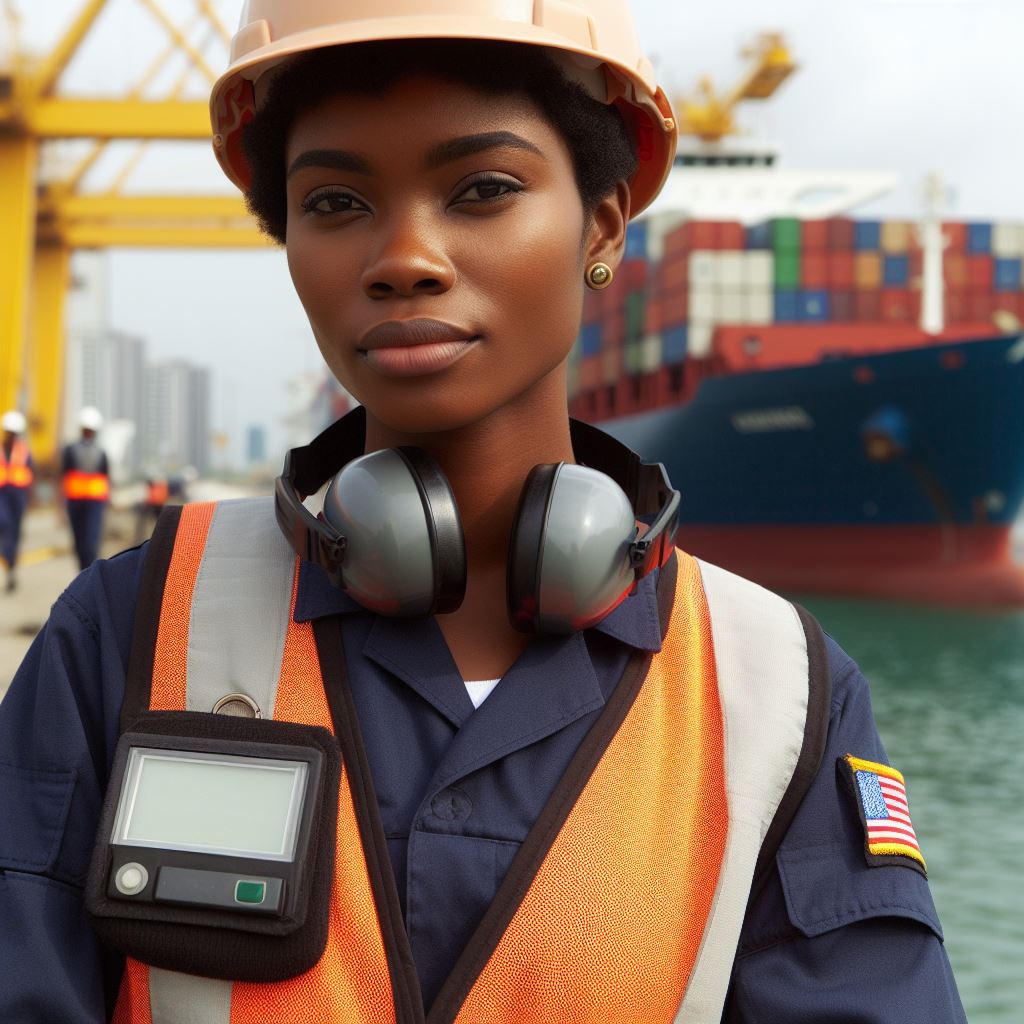Introduction
Sustainable shipping, vital for environmental preservation, optimizes vessel operations and reduces ecological footprints.
Nigeria’s pivotal role in sustainable shipping bears immense significance. Education serves as the linchpin in fostering sustainable shipping practices within Nigeria.
Nigeria, as a maritime hub, stands poised to drive sustainable shipping initiatives regionally and globally.
The country’s strategic geographic location along major trade routes amplifies its influence on maritime activities.
Education emerges as the cornerstone for Nigeria’s transition towards sustainable shipping.
By imparting knowledge and skills, educational institutions can cultivate a generation of maritime professionals committed to eco-friendly practices.
The global shipping industry faces escalating environmental challenges, demanding innovative solutions.
Nigeria’s involvement in sustainable shipping initiatives becomes indispensable, steering the sector towards greener and more efficient practices.
Nigeria’s active participation in sustainable shipping aligns with international efforts to mitigate climate change and preserve marine ecosystems.
As a populous African nation, Nigeria’s commitment to sustainability sends a powerful message, inspiring similar actions across the continent.
Education acts as a catalyst in sensitizing stakeholders about the importance of sustainable shipping.
It empowers individuals with the expertise to implement eco-conscious strategies and technologies within Nigeria’s maritime sector.
Furthermore, Nigeria’s role extends beyond its immediate shores, impacting neighboring countries and fostering a culture of sustainability across West Africa’s maritime landscape.
In essence, Nigeria’s proactive engagement in sustainable shipping, coupled with educational initiatives, not only elevates its global standing but also demonstrates a resolute commitment to safeguarding the environment for future generations.
This post underscores the interplay between sustainable shipping, Nigeria’s pivotal role, and the indispensable role of education in shaping a greener maritime future.
Read: Essential Skills Every Shipping Manager in Nigeria Should Have
Nigeria’s Role in Sustainable Shipping
Current state of shipping industry in Nigeria
The shipping industry in Nigeria plays a crucial role in the country’s economy.
Nigerian ports serve as vital gateways for trade and transportation, connecting the nation to the global market.
These ports handle significant volumes of goods, facilitating both imports and exports.
However, despite its importance, the shipping industry in Nigeria faces several challenges that undermine its sustainability.
Nigerian ports are facing severe congestion issues due to poor infrastructure, inefficient operations, and inadequate resources.
This congestion leads to delays in cargo clearance, increased costs, and ultimately affects the overall efficiency of the shipping industry.
Moreover, corruption and bureaucratic red tape further exacerbate these problems, hindering the growth and development of the sector.
Initiatives taken by Nigeria to promote sustainable shipping
To address the challenges and promote sustainable shipping practices, Nigeria has taken various initiatives.
The Nigerian government has introduced policies and regulations aimed at ensuring compliance with international standards, improving port operations, and enhancing environmental sustainability.
These policies include the Port and Harbour Bill, which seeks to regulate the activities of ports and ensure transparency and accountability.
Furthermore, Nigeria actively collaborates with international organizations such as the International Maritime Organization (IMO) and the United Nations Conference on Trade and Development (UNCTAD) to enhance its shipping industry.
Through partnerships, Nigeria seeks technical assistance, capacity building, and knowledge sharing to improve infrastructure, human resources, and port management practices.
In addition to policy and collaboration, Nigeria is embracing technological advancements to promote sustainable shipping practices.
The adoption of eco-friendly technologies in shipping operations is a key focus for the country.
This includes the implementation of clean energy sources, such as using liquefied natural gas (LNG) as a fuel alternative in ships, reducing carbon emissions, and improving air quality.
Additionally, Nigeria is exploring innovative solutions like digitization and automation to enhance efficiency and reduce waste in port operations.
In fact, Nigeria’s role in sustainable shipping is crucial for the country’s economic growth and global trade.
Although the shipping industry in Nigeria faces challenges, the government’s policies, collaborations with international organizations, and the adoption of eco-friendly technologies demonstrate the commitment to promoting sustainable practices.
These initiatives aim to improve infrastructure, enhance port operations, and reduce environmental impact, making Nigerian ports more efficient and eco-friendly.
With continued efforts, Nigeria can emerge as a leading player in sustainable shipping, contributing to a greener and more resilient maritime industry.
Read: Shipping Tech: Bridging the Gap in Nigerian Trade
Role of Education in Sustainable Shipping
Importance of educating maritime professionals
- Enhancing knowledge of environmental impact: Educating maritime professionals helps them understand the environmental consequences of shipping activities.
- Promoting sustainable practices in operations: Education equips professionals with the skills and mindset to incorporate sustainability into their daily operations.
Educational programs and institutions supporting sustainable shipping in Nigeria
- Overview of maritime education in Nigeria: Nigeria has several institutions offering maritime education that plays a crucial role in sustainable shipping.
- Courses and certifications focusing on sustainable shipping: These programs teach professionals about sustainable shipping practices, including emissions reduction and waste management.
- Collaboration between educational institutions and industry stakeholders: Partnerships between educational institutions and industry stakeholders promote knowledge exchange and sustainable shipping practices.
Read: Career Opportunities Post Shipping Management Degree in Nigeria

Challenges and Opportunities
Challenges in implementing sustainable shipping practices in Nigeria
Implementing sustainable shipping practices in Nigeria comes with its fair share of challenges.
One of the biggest hurdles is the lack of awareness and education among the Nigerian population.
Transform Your Career with Expert Guidance
Get personalized mentorship consulting that’s tailored to your unique path. Our expert advice is actionable and exclusive.
Get StartedMany people are unfamiliar with sustainable shipping practices and their benefits.
This lack of awareness hinders progress in adopting eco-friendly technologies and practices.
Another challenge is the financial constraints faced by Nigerian shipping companies.
The upfront costs of adopting sustainable technologies can be substantial, making it difficult for many companies to invest in such upgrades.
Without financial support or incentives, the adoption of eco-friendly technologies may remain out of reach for many Nigerian companies.
Furthermore, Nigeria’s limited infrastructure and resources pose additional challenges.
The country lacks adequate facilities and resources to support the implementation of sustainable shipping practices.
This includes a lack of recycling facilities and proper waste management systems, which are crucial for sustainable shipping operations.
Opportunities for sustainable shipping in Nigeria
Despite these challenges, there are significant opportunities for sustainable shipping in Nigeria.
One major opportunity is the potential economic benefits that come with adopting sustainable practices.
While the initial investment may be high, sustainable shipping practices can lead to long-term cost savings.
Energy-efficient technologies, such as fuel-efficient engines and optimized vessel designs, can reduce fuel consumption and operational costs for shipping companies.
Furthermore, sustainable shipping practices contribute to the improvement of environmental sustainability.
Nigeria is home to diverse ecosystems, including coastal areas and marine habitats.
By reducing pollution and minimizing environmental impacts, sustainable shipping practices can help protect these fragile ecosystems.
This, in turn, ensures the long-term viability of Nigeria’s natural resources and supports sustainable development.
Additionally, adopting sustainable shipping practices can enhance Nigeria’s international reputation in the maritime industry.
As global awareness of the need for sustainable practices grows, countries that prioritize environmental sustainability are likely to gain a competitive edge.
By positioning itself as a leader in sustainable shipping, Nigeria can attract environmentally conscious customers and investors, boosting its reputation in the international maritime community.
In short, while implementing sustainable shipping practices in Nigeria may present challenges, there are numerous opportunities for growth and positive impact.
Overcoming the lack of awareness and education, addressing financial constraints, and investing in necessary infrastructure are key steps that need to be taken.
By embracing sustainable shipping practices, Nigeria can enjoy economic benefits, improve environmental sustainability, and enhance its international reputation in the maritime industry.
Read: Admission Requirements for Maritime Studies in Nigeria
Conclusion
Nigeria has made significant strides in promoting sustainable shipping practices by implementing regulations and adopting green technologies.
Education plays a crucial role in creating awareness and providing knowledge about sustainable shipping practices, leading to their effective implementation.
It is essential for individuals to support sustainable shipping practices by making conscious choices, organizations to implement eco-friendly policies, and the government to provide incentives and regulations to promote sustainable shipping in Nigeria.
By working together, we can ensure the protection of our marine environment and achieve a more sustainable shipping industry in Nigeria.




